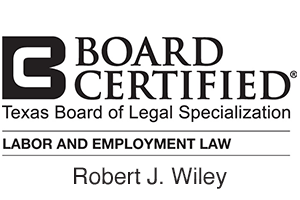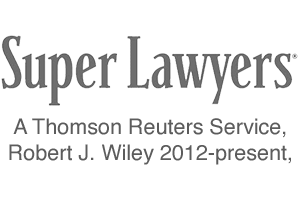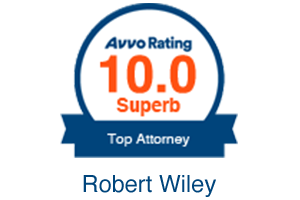in Austin, Texas
Workplace Safety
Rob Wiley: My name is Rob Wiley and today I’m going to be talking to Austin employment Colin Walsh about workplace safety. We spend our lives in the workplaces. A lot of times that brings us into close contact with machines, chemicals, things that can be dangerous. What kinds of protections do employees have to safe workplace?
Colin Walsh: An employee does have a right to a safe workplace and if they’re not, if they find safety violations, they can report them and be free from retaliation for reporting those safety violations.
Rob Wiley: And I think retaliation is one of the most important rights that you have there. It’s not uncommon for employers to want to retaliate against somebody who makes a complaint. I mean, in an ideal world, you would bring that complaint to your supervisor or to human resources and they take prompt action but unfortunately, that doesn’t always happen. And if it’s a workplace safety issue, it’s particularly important that something be done. So what kind of actions should an employee take? What should they do if they see something that’s unsafe and they want to take action?
Colin Walsh: Well, the employee should talk to an employment lawyer and report it to OSHA.
Rob Wiley: So let’s say that an employee hires an employment lawyer to work for them and they take the complaint to OSHA. What happens next? What, does OSHA do?
Colin Walsh: Well, OSHA will assign an investigator and they will then look into the safety violation or the retaliation complaint.
Rob Wiley: And I think that that’s one of the more important things is I would never want to be in a situation in which an employee goes and says hey, we have a dangerous situation here. Maybe tells his supervisor this and then gets fired. And so then we file our retaliation claim and the supervisor says he never told me that. He never made that statement to me. And all we have is our client’s word. Obviously, if that person hires an employment lawyer ahead of time, we can take that complaint to OSHA or we can bring it to the company’s general counsel and we can do it in a way that there’ll be a record so that if there is retaliation there’ll be something that we can do to protect that person’s job. So obviously, you could have a workplace in which the danger is usually, a dangerous machine or, or something physical, like a caustic chemical. But what if the dangerous issue is another employee. An employee who may be violent or assaulting. Does OSHA give someone any sort of rights or protections in that situation?
Colin Walsh: Yes, it does. Under the Obama administration, new regulations came out that protect employees from workplace violence. And those are enforced by OSHA.
Rob Wiley: And it’s actually surprising in passing those regulations, obviously they did a lot of statistical research and, it’s just shocking, the number of homicides that occur in the workplace. And so these laws are out there to protect people from those kinds of dangerous situations as well.







